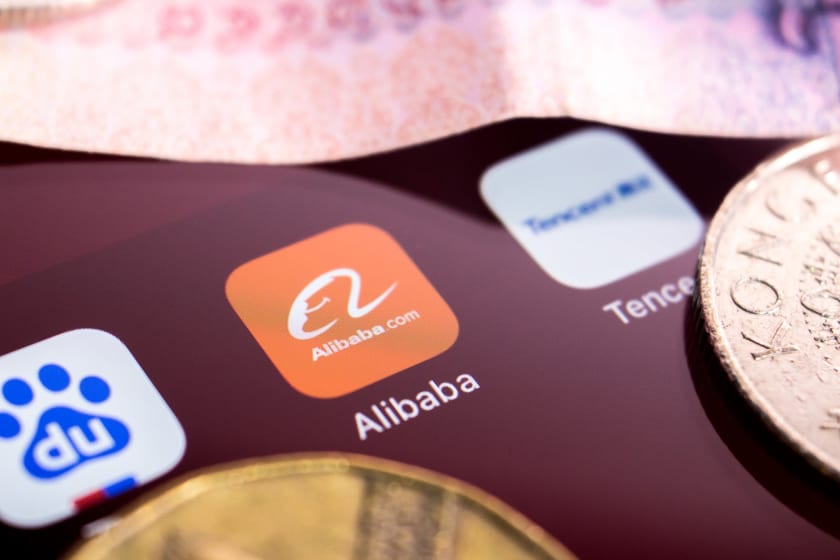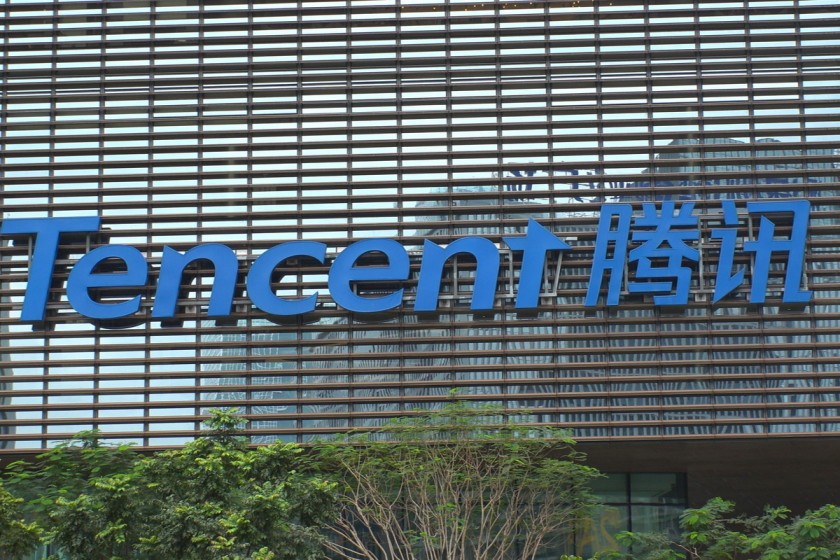Alibaba and Tencent: 2021 Review And Outlook



Market analysts and investors are keeping a bird’s eye on the current trends in the companies and their performances. Recently Alibaba and Tencent have been in the news and, sadly, for poor reasons. Both Tencent Holdings and Alibaba Group Holdings have dropped out of the top ten companies in global market capitalization. This has erased the availability of any Chinese members on the list of the top ten global market capital holding companies.
A quick history of Alibaba and Tencent:
Alibaba Group Holdings Limited or Alibaba is a popular Chinese multinational technology company. It was founded on 28th June 1999 in Hangzhou in Zhejiang and is into retail, internet, technology, e-commerce, etc. It is counted as one of the world’s largest e-commerce and retailer companies. It has achieved many feats as it ranked as the world’s fifth-largest artificial intelligence company in 2020. Further, Alibaba is one of the biggest investment corporations in the world and one of the biggest venture capital firms. Some of the key platforms hosted by Alibaba include Tmall as a B2C marketplace, Taobao as a C2C marketplace, and Alibaba.com as a B2B marketplace.
Tencent Holdings Limited or Tencent is the leading Chinese multinational entertainment, holding, and technology company which was founded on 11th November 1998. It was headquartered in Shenzhen. Tencent is one of the largest companies in the video game industry based on investments. The different subsidiaries of Tencent focus on games publishing, technology, artificial intelligence, entertainment, etc. Tencent comes as one of the world’s largest video game vendors and one of the reputed and financially valued companies. Like Alibaba only, it has achieved many feats, including surpassing the market value of 500 billion USD in 2018 and becoming the first Asian technology company to achieve this. Multiple investment firms have rated Tencent with high standard ratings based on services, valuation, share prices, etc.
Position of Alibaba and Tencent in 2020:
Alibaba ranked at the ninth position, and Tencent ranked at the seventh position in the list of the top ten market holding companies based on the capital. Recently, Tencent crumbled to 11th place after a decrease of 40% in the capitals. Some US technical giants like Apple, Microsoft, Google’s parent company Alphabet, Saudi Aramco, Amazon.com, Tesla, Meta, etc. It is followed by Nvidia, Berkshire Hathaway, and Taiwan Semiconductor Manufacturing Co.
In the year 2007, the Shanghai Composite Index was at an all-time high with four out of ten companies from Chinese background only. These companies include PetroChina, China Mobile, Sinopec, Industrial and Commercial Bank of China, etc. It was only after the end of the great financial crisis that paved the way for the Chinese technology companies. The access to massive markets and the new business models earned many fortunes for the Chinese companies. But the tables soon turned for the Chinese technology companies as the US government started its backlash on the Chinese-origin businesses.
Multiple episodes of delisting from the New York Stock Exchange came soon after the hit of the United States policies. One such famous exit was Didi Global which is credited to making China’s largest ride-hailing platform. It existed within five months of its debut. One of the key reasons for such an existence goes to the Chinese government’s tight policies. It has created strict policies for the Chinese companies that prefer to list overseas to ensure that sensitive data remain hidden from their foreign counterparts.
Alibaba and Tencent 2021 review:

Alibaba and Tencent have lost 103.9 billion USD and 170.2 billion USD, respectively, by 2021. In 2021, Tencent Holdings Limited became one of the biggest stock losers of the year. It has lost 23% of its value after the end of the first half of 2021, which has cost it more than 170 billion USD. According to Bloomberg, it is the fastest eradication of the shareholder’s wealth in 2021. If the top ten companies which have lost their net worth in 2021 are set to be counted, the top losers include Alibaba and Tencent, including Meituan.
A unanimous article led to the downfall of Tencent as it termed online gaming as the ‘spiritual opium” for the kids. This online article was soon removed from the sources, but it gave a strong hint to the high-performing shares of the online gaming stocks. Tencent took a strong note of the same and assured that it will restrict the gaming time for the kids under the age of twelve to one and a half or one hour only. However, the financial analysts pressed that the revenue earned from this age bracket is the least for the online gaming companies.
Beijing is cracking down on the education sector in 2021 but tried to prove its intensified concerns in the same direction. The downfall of Tencent Holdings Limited can be termed as the official campaign against the nation’s technology businesses. It came when these technical giants were considered to pose a threat to China’s financial stability and data security. The crackdown of Tencent Holdings Limited intensified as Beijing opened the way for the once high-performing sector, i.e., the private education that led to the shared sell-off of the company.
It was not only Alibaba and Tencent but some of the key losers in July 2021 included:
· Meituan- 87.9 billion USD
· Pinduoduo- 59.5 billion USD
· Kweichow Moutai- 49.0 billion USD
· Kuaishou Technology- 43.0 billion USD
· Wuliangye Yibin- 30.3 billion USD
· Ping An Insurance Group Co of China Limited- 29.2 billion USD
· Prosus NV- 26.5 billion USD
· KE Holdings Incorporation- 27.9 billion USD
Alibaba and Tencent- What do experts say?

The managing director of the Pegasus Funds Managers Limited, Paul Pong, claims that there is no end to this crackdown of the Chinese government on technological companies. He states that it should be considered as the new normal in the industry. He further recommends that the companies like Tencent can go for adjusting their valuations to cope with the losses incurred due to these unexpected crackdowns.
Giving a cool picture to the current windstorm in Tencent, 62 out of the 68 financial analysts refrain from cutting their prices for Tencent shares. All the shares of the company are now looked to be cheap and accessible, and hence, it comes as no great surprise that the company’s stocks were trading at 22.5 times faster than earnings in July 2021. It was below the historical average of 30 times but has gained something good after falling down continuously for the last six months.
The popular Citigroup analyst Alicia Yap believes that the substantial share buyback can be the right decision for Alibaba and Tencent. It can help reverse the poor mood of the investors, and hence, companies can expect a kick in their current market value. The announcement of the substantial share buyback or increase in the existing buyback programs may hint at the management’s confidence in the business fundamentals. It is enough for the investors that can be reassured of the business’s future growth and development.
Alibaba is led by example when it comes to substantial share buybacks as it recently increased the stock buyback from 10 billion USD to 15 billion USD. However, the smart management ensured that this increased buyback doesn’t harm the EPS or net income of the organization. Furthermore, the company has started investing in itself and clearly conveys that it is time to bring in some money.
Outlook of Alibaba and Tencent:
The popular economist and the chief economist in the Economic Research Development at the Dai-ichi Life Research Institute estimates that the outlook of the Chinese equities depends on “how serious the US is about stopping the flow of funds into China.”
After the superpower, the US administration has increased the pressure on Chinese businesses. The US has barred the Americans from investing in the Chinese entities and has accused them of military development or human rights abuses.
Coming to the larger picture of the Chinese markets, the Shanghai Stock Exchange is expected to be in third place, supported by the large volume of the new listings. It is expected to be followed by the Stock Exchange of Hong Kong and the Shenzhen Stock Exchange, respectively. The small and medium manufacturing units and the technology companies are set to increase the listings on the SSE STAR Market, Beijing Stock Exchange, ChiNext, etc.
Wrapping Up:
The current review of Alibaba and Tencent indicates the clear reasons for their exit from the world’s top ten capital holding markets in 2021. The overlook hints at the struggle of the financial companies after facing strong pressure from Washington and Beijing.
China is keeping a strong crackdown on its technology companies while the US is trying its best to ensure that Chinese companies don’t get good investments from the region. Needless to say, Tencent has recorded one of the world’s biggest stock losses while Alibaba is trying hard to survive in the challenging markets.



















